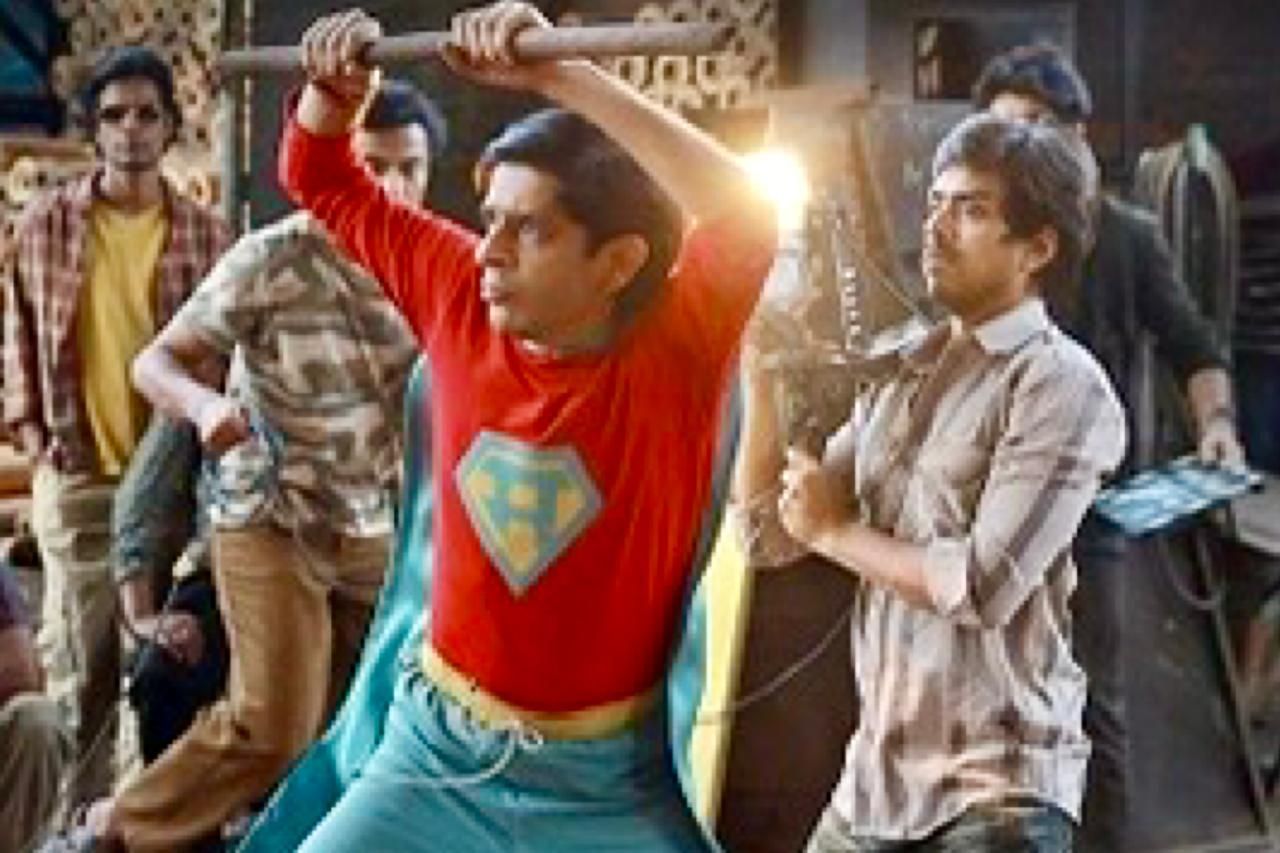
‘Superboys of Malegaon’, directed by Reema Kagti, celebrates the DIY film industry of a small textile town in India. Premiered at the London Film Festival, it tells the inspiring story of local filmmakers turning their dreams into reality with no-budget parodies.
The bright lights of the British capital are a world away from Malegaon, a modest textile town in the backwaters of Maharashtra state in western India. Yet, the two have come together at this year’s London Film Festival, where the remarkable story of Malegaon's unlikely film industry success had its European premiere.
Superboys of Malegaon, by director and producer Reema Kagti, follows the true story of Shaikh Nasir and his friends, who create no-budget parodies of Bollywood and Hollywood classics such as Sholay and Superman. Using DIY filmmaking techniques, amateur actors, and a unique local dialect and comedy, their works became instant local hits.
They gained international recognition with the 2008 release of Supermen of Malegaon, a documentary about their work. Malegaon's connection to the giant Hindi-language film industry, however, isn’t too distant. By a twist of fate, co-producer Zoya Akhtar’s father, Javed Akhtar, wrote Sholay, the very film that inspired Nasir's passion for filmmaking.
“It’s a very, very big story from a very small town in India,” Akhtar told AFP in an interview. “It shows how connected we all are, especially through cinema.” Kagti added, “Nasir’s influences and mine are very similar. It was a privilege to tip our hats to so many actors and aspects of Indian cinema.”
Superboys is an ode to the determination of Nasir, portrayed by Adarsh Gourav, who starred in the Oscar-nominated adaptation of Aravind Adiga’s The White Tiger. In Malegaon, a town located 300 kilometers (185 miles) from Mumbai, video parlours — small cinemas — offer laborers a much-needed escape from the daily grind of industrial weaving looms.
Nasir’s films provide comedic relief and a chance for locals to see their town portrayed on the big screen, Kagti noted. “Every person involved in these films has been immortalized, becoming heroes in their own right, and it has given them a reason to not just exist but to celebrate life,” added Gourav.
With no budget and little experience beyond his love for movies and his work as a wedding videographer, Nasir improvises with homespun techniques. In his Superman spoof, the hero flies in comical red shorts, aided by quirky green-screen effects, while Nasir shoots tracking shots from the back of a truck speeding along bumpy roads.
Superboys touches on themes from poverty to love, but never drifts far from Nasir’s unwavering belief in the power of a camera — and some imagination — to turn the ordinary into something extraordinary. “The story is so universal that we believe it will reach a global audience,” said executive producer Ritesh Sidhwani.
The film has already been shown at the Toronto International Film Festival, and with its screening in London, Sidhwani hopes it will attract audiences beyond the Indian diaspora. Nasir’s homemade films have carved out a niche for Malegaon in India’s often impenetrable film industry.
Akhtar sees a lesson for everyone, especially in today’s world of smartphones, where anyone can be a filmmaker. “People who watch this film will realize they don’t need to wait for a big break. They can take that first step,” she said.
Today, “Mollywood,” as Malegaon’s film scene is sometimes called, lives on. Some of the original actors have continued in Nasir’s footsteps, sharing their DIY creations on platforms like YouTube. “That industry is now a part of Indian cinema’s history,” Akhtar added.
In Superboys, Farogh, the writer of the spoofs, tells Nasir: “You told our stories in our own voices. You gave us dreamers a place in history.” Akhtar concluded, “In the history of Indian cinema, you’ve added a page for Malegaon.”
With AFP



Comments